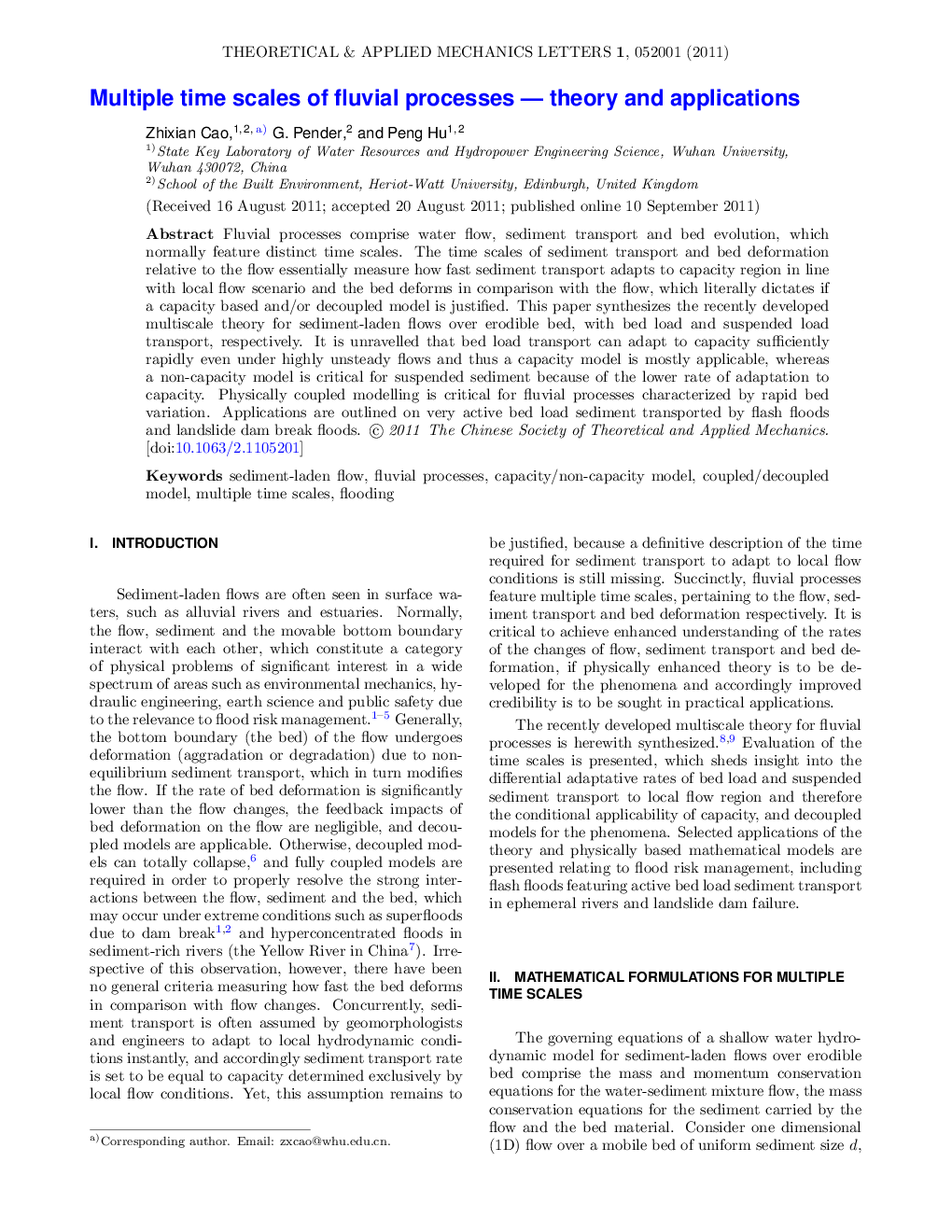| Article ID | Journal | Published Year | Pages | File Type |
|---|---|---|---|---|
| 808646 | Theoretical and Applied Mechanics Letters | 2011 | 49991 Pages |
Fluvial processes comprise water flow, sediment transport and bed evolution, which normally feature distinct time scales. The time scales of sediment transport and bed deformation relative to the flow essentially measure how fast sediment transport adapts to capacity region in line with local flow scenario and the bed deforms in comparison with the flow, which literally dictates if a capacity based and/or decoupled model is justified. This paper synthesizes the recently developed multiscale theory for sediment-laden flows over erodible bed, with bed load and suspended load transport, respectively. It is unravelled that bed load transport can adapt to capacity sufficiently rapidly even under highly unsteady flows and thus a capacity model is mostly applicable, whereas a non-capacity model is critical for suspended sediment because of the lower rate of adaptation to capacity. Physically coupled modelling is critical for fluvial processes characterized by rapid bed variation. Applications are outlined on very active bed load sediment transported by flash floods and landslide dam break floods.
